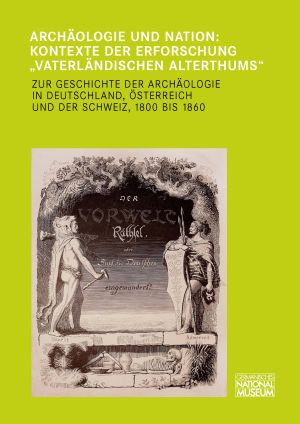How to Cite
License (Chapter)

This work is licensed under a Creative Commons Attribution-NonCommercial-NoDerivatives 4.0 International License.
Published
Gustav Friedrich Klemms 'Handbuch der germanischen Alterthumskunde' und das Dreiperiodensystem
Gustav Friedrich Klemm’s Handbook of Germanic Antiquity and the Three-Age System
Gustav Friedrich Klemm’s Handbuch der germanischen Alterthumskunde (Handbook of German Antiquity, 1836) contains two different albeit similar models of relative chronology: his own and an earlier concept developed by Friedrich Lisch. Both models defined different types of burial and assigned characteristic finds to each, reflecting the hypothesis of a progression in material culture from stone, to bronze, to iron. Despite this similarity, Klemm’s chronology did not derive from Lisch’s. Instead, Klemm probably built directly on the work of Jaspersen (1828), combining the latter’s experience, gleaned in Anglia, with the observations of south-German archaeologists. While Lisch developed a systematic chronology based on a broad range of individual features, Klemm’s approach was eclectic. Even in the Handbook he barely applied his system and never developed it further – in contrast to Lisch, who continued to work intensively on his model in later years. The immediate objective of Klemm’s Handbook was the widespread dissemination of basic ideas shared by himself and Lisch. While the Handbook contributed to the success of Thomsen’s Three-Age System, likewise published in 1836, it was also overshadowed by it and quickly forgotten, never achieving the wider audience and more lasting legacy it might otherwise have had.







